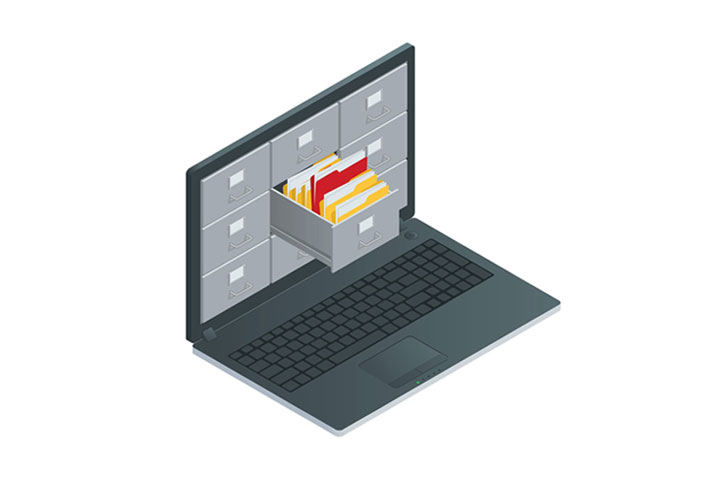Congratulations. You’ve graduated from law school and passed the bar. Now you’re debating between working for a firm or starting your own practice, and there are a lot of factors to consider. There are about 90 unique practice areas, and you only have time to become proficient in a few of them.
Starting an estate planning practice is attractive for many reasons, but it takes more time and patience to build and maintain an estate planning practice than most other fields. If you are not prepared to practice for at least 10 years, estate planning might not be a good fit for you, but if you are in it for the long haul, then you’ll find it a rewarding business to get into.
3 Reasons to Start an Estate Planning Law Practice
Building your own practice opens up a world of possibilities, and estate planning is a particularly good field for having your own practice. Here are some of the reasons why:
1. You Have Control of Your Time
Your schedule is not dictated by the local Court, meaning you have control over when and where to meet your clients. You can work from home more often than fields that require court appearances, and that gives you the flexibility to spend more time with your family or doing other things that you love to do. In short, you will have significantly more freedom and autonomy in your life than other lawyers.
Most estate planning clients are also not under any personal pressures unlike, say, the divorce, criminal, or bankruptcy fields. There are few hard deadlines to meet, client tempers rarely fly, and there is usually little drama. You will seldom have problems collecting your full fee. Ironically, a problem many estate planning clients have is that they have too much money.
2. You Work With Better Clients
Estate clients are generally responsible and proactive people whose legal challenges at worst require planning for dysfunctional family members. The most common challenges you will face revolve around having disorganized clients who may procrastinate a bit. No one likes to think of their own demise, so they tend to put estate planning off. Your job as an estate and trust practitioner is to help them move the process along and get their affairs in order.
3. You Develop Long-Lasting Relationships With Families
Unlike many other areas of law, after an estate planning engagement is over your clients will expect you to be around if there is an emergency to help their family. In a sense, you become their “family attorney.” Your clients have handpicked you and trust you, and they value having access to a lawyer they know has their back. This is one value-add younger lawyers have over the older guard — you guys will be around much longer.
This also opens up a lot of room for work for many decades and creates opportunities for interesting experiences and long-lasting relationships. Estate clients often have multiple homes, own a business, or hold an executive-level position, they sometimes own property overseas and have siblings scattered around the country and globe. You’ll interact with all of them, including their other professional advisors.
If you are around long enough, you’ll see their business and careers expand and contract, their personal lives and goals evolve, children come of age, grandchildren welcomed into the world, the beginning of marriages (and sometimes the end).
You’ll be there for them during all of it, and as the years go on you will become a wiser and increasingly indispensable advisor and counselor.
5 Steps to a Successful Estate Planning Practice
There’s no exact blueprint for building a practice, but there are strategies and mechanisms that are foolproof ways to get results. Here is what I wish I knew when I started my own firm.
Step 1: Learn the Law Thoroughly
It’s obvious, but the more time you put into learning the law upfront, the more headaches and time you will save yourself in the long run. Having a great (not just good) understanding of the law helps you work faster, boosts your self-confidence, and gives you more ways to help your clients.
Estate planning can be complex; it requires a thorough understanding of common and statutory estate and trust law, fiduciary duties, taxation, and probate procedure.
For general estate planning, start here:
- Read A Lawyer’s Guide to Estate Planning by L. Rush Hunt and Lara Rae Hunt. The best introduction on the market.
- Be sure to get a copy of Natalie Choate’s Life and Death Planning for Retirement Benefits. Learn that topic cold and you’ll be ahead of your competition.
- Subscribe to leimbergservices.com to stay “in the know” on a daily basis.
Take Advantage of Legal Resources
Attending Continuing Legal Education workshops may be the most effective way to learn about estate and trust law in your State. The estate planning lawyers who speak at these conferences are usually very open to helping lawyers new to the field (even though you might technically become their competition).
Also, be sure to join the local estate or probate Listserv. With the Listserv you will find plenty of other attorneys with answers to all your questions. My best tip to help you get started is to find an attorney to mentor you one-on-one. I had a mentor that I paid by the hour to review estate plans with me, offer strategic planning and drafting advice, and help me better understand the nuances of the practice.
That experience made me a better estate planning lawyer and saved me hundreds of hours of independent research and reading.
Study Financial Planning
There’s also a strong overlap between estate planning and personal finance and investing. Take a few courses in finance to make sure you understand the problems and fields your clients are thinking in. If you’re trying to work with wealthy millennials who are figuring out how to diversify their investments, understanding what they’re considering is key to both connecting with the client and finding places to interject your advice and expertise.
A few resources you should consider are:
- Personal Finance for Dummies
- LinkedIn Learning
- College Courses
- Friends and people who fit your target demographic who you can talk with to gain insights.
Step 2: Find Your Clients
Building a practice is building a business, and every business needs customers. Since learning the law will be an ongoing process, you should begin marketing yourself and bringing in clients as soon as possible. Plus, clients are a powerful motivator for learning, and it’s best to jump in the deep end sooner rather than later.
Marketing and building a business are entirely different skills from the law, so treat these aspects of your practice with equal care.
Here are the marketing mechanisms that got me off the ground years ago and continue to bring in clients decades later.
Get To Know Other Professionals
Networking with other professionals is essential. Financial advisors and accountants are the best sources for estate planning referrals (besides direct referrals from clients), so do everything you can to start meeting these people.
If you are young and inexperienced, don’t waste your time with the large brokerage houses. They’re looking for the most seasoned attorneys. Independent financial advisors, especially those your age and just getting started, will be your best bet.
There’s a built-in mutual respect that comes with meeting people who are of a similar age and at a similar point in their careers. It’s the same for accountants, but try and find the ones still working at small firms or who are also building their own firm. The goal is to find a group of professionals you respect and can grow with together. Since you’ll be talking with people also starting out, don’t expect a huge influx of clients — just be patient and helpful.
Even if you aren’t extraverted, meeting other professionals is easier and more fun than you may think. “Connecting” and “networking” can feel shallow, but it can be deeply rewarding if you approach it from the perspective of finding good people and potential friends who have overlapping interests. Yes, business is business, but you should temper your approach with finding people you genuinely enjoy being around — these are the people most likely to give you referrals in the long run.
Here are a few ways to meet other professionals in your area.
- Ask your existing clients, friends, and family members if they work with any financial advisors or accountants you meet.
- Become an active member in relevant online communities
- Join networking groups
Speaking of which…
Join Networking Groups
Join networking groups like the Financial Planners Association and look around for accountant and advisor meeting groups – they are always looking for speakers and content.
Avoid pursuing wealthier clients at first, those clients with $5 million + in assets. The “mass affluent,” which are people with assets in the $500K – $2M range, are plentiful and often open to less experienced and less expensive lawyers. That’s your sweet spot (for now!)
Host Lunch Meetings
This may be something you experiment with after you’ve landed a few clients and feel comfortable speaking in front of people, but I’ve had a lot of success hosting luncheons for local financial pros and giving a 30-Minute presentation on the benefits of having a trust, reasons to avoid probate or easy ways to protect your assets. This establishes technical credibility and is a good way to get your name in peoples’ minds.
Advertise Your Practice
Advertising can be a black hole if you’re not careful, but if you can find specific events, websites, and magazines where you know your target demographic is already interacting with and you can match it with a specific offer that you can track results from, it can be worth it. Digital ads are easiest to track these days, and hiring a pro to set up great Google Ads can be worth it when you’ve got some cash to reinvest in your business.
If you’re building a highly localized business it can also be worth doing local sponsorships for name recognition. Don’t expect immediate gratification, though, building a reputation takes years.
Participate in Legal Plans
Many companies offer legal plans as a benefit to their employees, so you can easily generate new business by participating in these plans. These are sponsored by MetLife Legal Plans and AragLegal, and participation means accepting substantially reduced fees, but the volume and portfolio experience can make up for it.
Contact your state and local Bar Associations for referral lists to get started.
Use Court Appointments for More Early Experience
For many years I participated in the local county probate courts’ “guardian ad litem” programs in which probate judges assign cases that require an independent attorney’s involvement. The fees are significantly reduced but the experience is invaluable. Just remember that this is a stepping stone to better clients and pay.
Step 3: Manage Your Business
It’s up to you to build the space and dictate your client’s experience. There’s a lot to running a business, and here’s what you should be thinking about as you grow.
Get an Office if You Can
I’m an advocate of having a brick-and-mortar office when starting an estate planning practice. It conveys to your professional network and client base that you aren’t going anywhere. This is a sense of permanence and stability that estate clients embrace.
While working from home can be effective and desirable, it is best to meet clients at an established office. If you want to build an estate planning practice, you’ll want to avoid meeting clients at coffee shops and restaurants since estate clients value privacy more than most clients. Also, when it comes to signing the documents, you’ll need at least one more person to witness them.
Consider Office Sharing to Save Money
If you can find office space to share with other attorneys (preferably those who don’t do estate planning), you’ve hit the jackpot. There is a lot of logistics involved in starting your own estate planning practice and establishing an office. Working in a shared office space minimizes the pain of getting set up. Look for a well-appointed lobby and a conference room that seats at least 6 people. It is also helpful to use a large computer monitor in the conference room to illustrate and review draft documents; clients love it.
If leasing office space is not yet in your budget, there are many office sharing companies and spaces available on an hourly or per diem basis. If that type of arrangement works for you, continue using the same location as long as possible.
Form an Entity
Creating an entity, a professional limited liability company, or a professional corporation is easy, and so is obtaining a tax identification number (an EIN). Be sure to have a separate business bank account and even a business credit card that is strictly used for your practice. While it will cost a few bucks, having a good accountant is worth it. He or she can help you determine if setting up as an S Corporation, “C” Corp, or PLLC is right for you.
Get Basic Equipment
Even in the 2020s, you’ll need a high-speed printer and copier, and maybe more importantly, have a standalone scanner connected directly to your main workspaces. Fujitsu scanners are fantastic — the one I have now has been running smoothly for 10 years. Don’t underestimate how much you need a good computer and internet, either. Time is money and coping with what might seem like few second delays throughout every day can easily add up to thousands of dollars of lost billable time annually.
Don’t Skimp on the Little Things
Printed business cards might be old fashion, but so are a lot of estate planning clients. The less gray hair you have, the more beneficial it will be to dress up. Business casual is a must when meeting estate planning clients, but if you are just getting started, put on a suit.
Finally, remember to obtain malpractice insurance. Besides being prudent, referral sources will often want verification of coverage.
Step 4: Hire an Assistant
Assistants are critical at the right time, but unless you already have 1200 hours of annual work in your pipeline, hold off on this step. While doing routine and non-billable work 10 or more hours per week might feel like a waste of time, it’s better early in your career to find efficient ways to get it done yourself.
Use stamps.com for your postage and mailing, take a look at Dragon Dictation software to more efficiently prepare correspondence and other documentation, and take a bit to get good at Word and Google Docs, they are loaded with features to make document development quicker and easier.
When you can comfortably afford it, and you can no longer handle this type of administrative work yourself, hiring an assistant will become necessary.
Here’s how to hire one when you’re ready.
Find an Experienced Assistant
Finding a qualified, part-time employee is a pipedream. Getting the right full-time assistant and keeping him or her is not easy. Turnover is costly, and so is training someone. If you find an office sharing arrangement, try to share a secretary, although that has its own challenges. It is also more affordable and sometimes more desirable for the assistant rather than just working one-on-one.
So who do you hire? An inexperienced assistant will cost less but require more training, and that may not be worth it. A secretary who is unfamiliar with the practice of law might not like it and may end up in a costly turnover.
My advice? Hire an assistant with at least 5 years of law firm experience, preferably in the estate and trust field. It’s worth the premium and waiting until you can afford that premium is okay.
Not only will you spend less time training and reduce the risk of turnover, but a good assistant will improve your practice by bringing the tips and tricks learned at their previous positions. A well-trained and experienced assistant can make you money by handling the more routine but billable tasks inherent when building an estate planning law practice. Spending your time where it is most impactful is fundamental to growth.
Opt For In-Person Assistants if Possible
In my opinion, the benefit of virtual assistants is limited for an estate planning practice. Having someone who knows you and your clients is invaluable. No matter how hard you try to go paperless, there is paper changing hands in an estate planning practice. Having someone physically in your office is very helpful.
Step 5: Use Modern Software and Tech
Starting a new estate planning practice today means keeping up with both the law and available technology we have to make our work and our clients’ lives easier. It’s also a great way to demonstrate your modernity and land more tech-savvy, younger clients.
And with any piece of software or technology, make sure you understand exactly what it’s doing for you and why. Don’t rely on them as crutches to prop up a poor understanding of the law or use them just because they’re popular in the industry.
Here are a few of my favorites:
For Document Assembly
There are a number of software applications to help you assemble and prepare estate planning documents. The most popular software applications are Wealth Docx, Interactive Legal, and Fore! Trust.
For Accounting
I use Quickbooks for accounting (I’m a former CPA and I’ve tried them all). Not only can Quickbooks help you keep track of your expenses, reconcile your bank accounts, and generate financial statements, but it has a time and billing feature. Use the online version if it fits your budget.
For Accepting Credit Cards
I ask clients to pay by direct deposit or check whenever possible since credit cards will cost you 2% – 3% of your gross revenue. However, for smaller engagements, I send clients a payment link from LawPay.com. To make up for the credit card fees, you might consider charging a 3% convenience fee — most clients won’t mind if you’re upfront about it.
For Practice Management
There are sophisticated practice management applications available that have countless features, but I have found all of them overkill for solo or small practice groups. It’s usually more cost-friendly to stitch together a few online services into a relatively cheap management solution, at least at the beginning of your practice.
Here’s what I use at the moment:
- Microsoft Outlook for keeping track of appointments, deadlines, contacts, and tasks. Google also works just fine.
- Outlook4lawyers.com to electronically file and organize all my emails.
- Copernic to easily search for files and emails. This one has saved me countless hours.
- Print Conductor for printing dozens or more documents at the same time.
It is perfect for managing an estate planning practice. Storing documents in the cloud has a lot of advantages, including automatic backups and the ability to access the documents from anywhere, so I strongly recommend it. I resisted the move for years, but I have found cloud storage dependable and effective.
For Document Storage and Emergency Access
After the estate plan is signed, you’ll want to keep in touch with your clients – they know and trust you, and will eventually be your best source for revenue and referrals.
Eventually, some of your clients will become incapacitated and many of them will die before you. Their families will need help administering the estate or trust. That is where the “real money is.”
Staying in touch with estate planning clients is not easy. After they sign their plan, they are ready to move on. They may reach out to you years after the engagement, but only if you do a great job for them and you stay on their minds.
You can stay connected with your clients and their most trusted family members for years after each engagement by signing them up for a LawSafe® subscription. LawSafe® will help them keep their affairs in order, and with its white labeling for law firms and automated email reminders, LawSafe® ensures you will remain on your clients’ minds. A professional LawSafe® subscription is free for you, and you can set up clients for as little as $16.90/year.
Start using LawSafe® for free and build a stronger estate planning practice
Final Thoughts on Starting an Estate Planning Law Practice
As an estate planning lawyer, you will become a trusted advisor and personal confidant for your clients and their families. You will learn everything about them; who they trust and who they don’t; how much they earn, save and spend, the nature and extent of their property, and what they want to do with their estate when they die.
That is a big responsibility, and like any long-term relationship, it requires honesty and consistent work. Fortunately, an estate planning law practice rewards that hard work and trustworthiness and becomes more lucrative and personally rewarding over time.
All you have to do is get started.
Discover the software the best and brightest estate planning lawyers use in their practices






